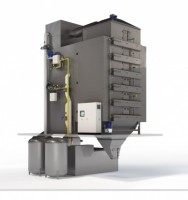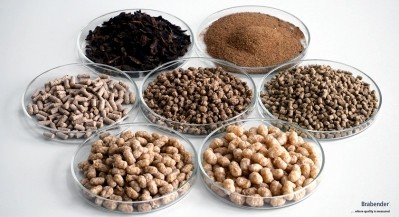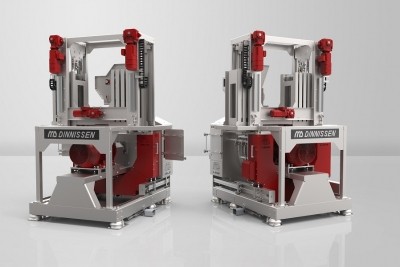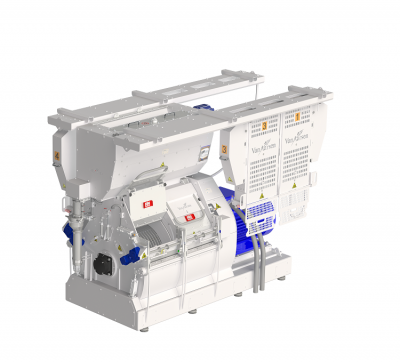Reports from VICTAM 2019, in Cologne
Renewable energy trend behind hybrid dryer design
The equipment can use both gas and electricity as source of energy.
We spoke to its CEO, Sander Geelen, at the trade show in Cologne, where he told us about the sustainability benefits for pet food and fish feed manufacturers from investing in the dryer.
“We have had counterflow dryers for over 20 years but electric counterflow drying is new.”
Switching away from gas towards electricity in terms of drying is a model that the company has been developing in the past few years. “It has now come onto the market, and, actually, this week we received the first order for that kind of machine,” said Geelen.
“Gas is a fossil fuel and, in the long run, people will have to move away from fossil fuels for reasons of the Paris Climate Agreement, and, of course, other similar agreements. We have to look at alternatives. Gas is going to have a CO2 footprint, and electricity, potentially, can be without a CO2 footprint if it is renewable. So you can use renewable energy and, also, you can even reduce the amount of energy [in the hybrid dryer] by using a heat pump, so it is becoming both more efficient and less CO2 intensive.”
Gas prices
The amount of time it takes to recover the investment in the hybrid dryer depends on the market where it is deployed. “So if you are in a country where gas is very cheap, then it is going to take a long time, because the gas version would be relatively low cost to run versus the electricity version. But if you are in a country where gas is expensive, then the alternative, electricity, becomes more attractive, giving you lower operational costs, and then your savings per year are significant.”
The first one has been sold to a manufacturer in South Korea, a market where gas is relatively expensive, he said.
“We have identified quite a few markets, including in Scandinavia and many other countries, where the relationship between gas and electricity prices is attractive for this kind of equipment. We also believe that fossil fuels will become more expensive in the future, because of supply and demand, or because of fiscal policies.”











